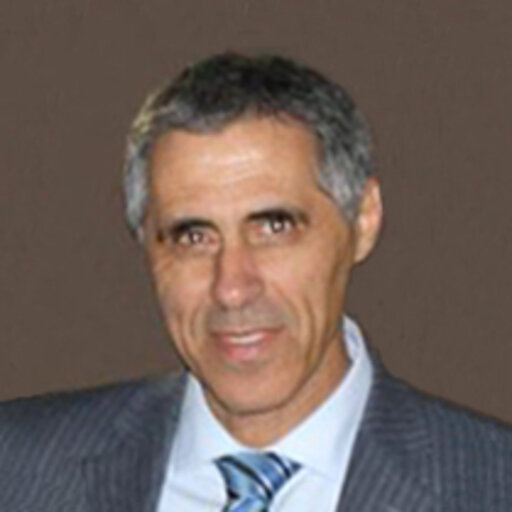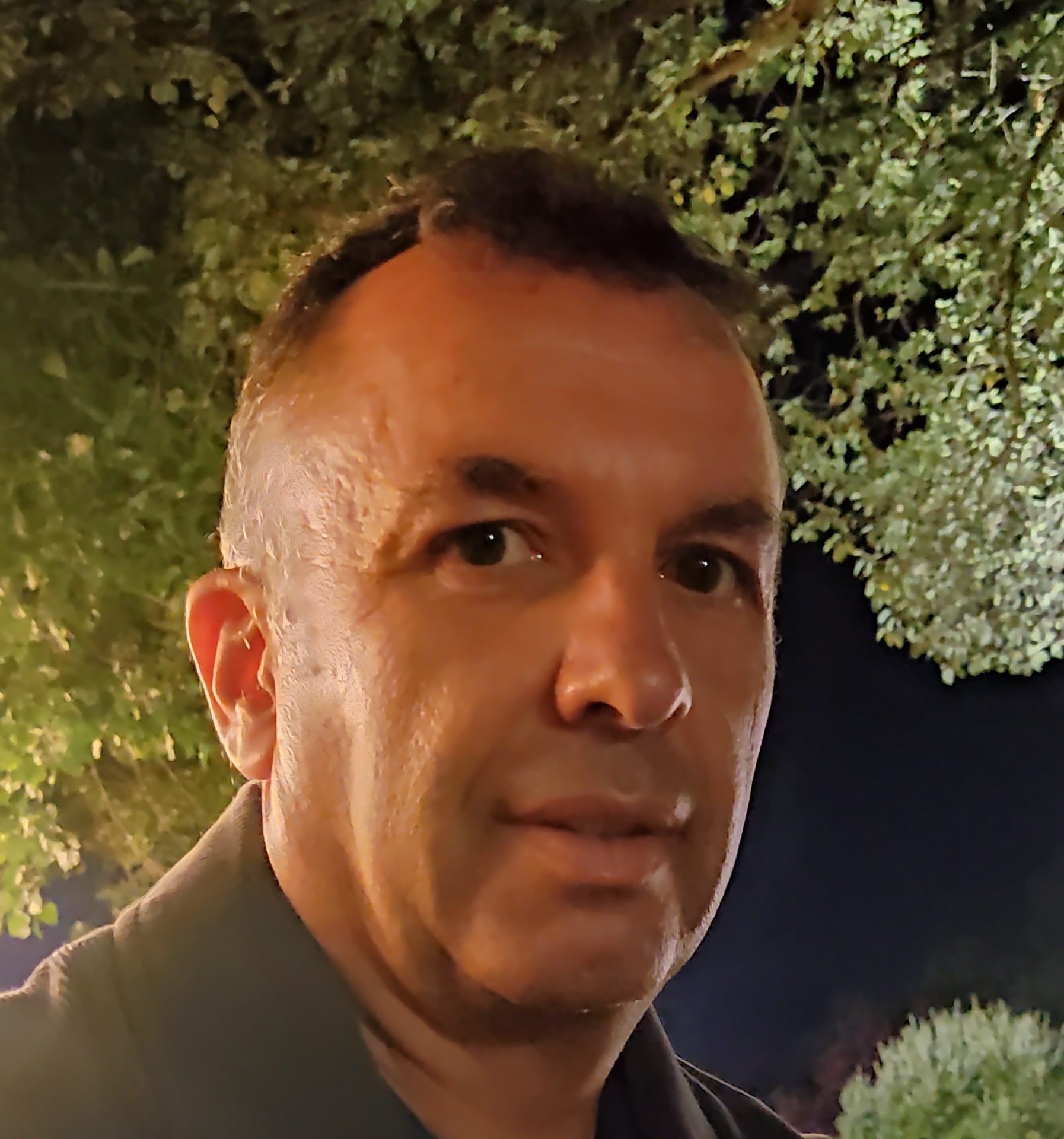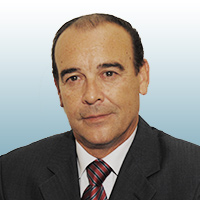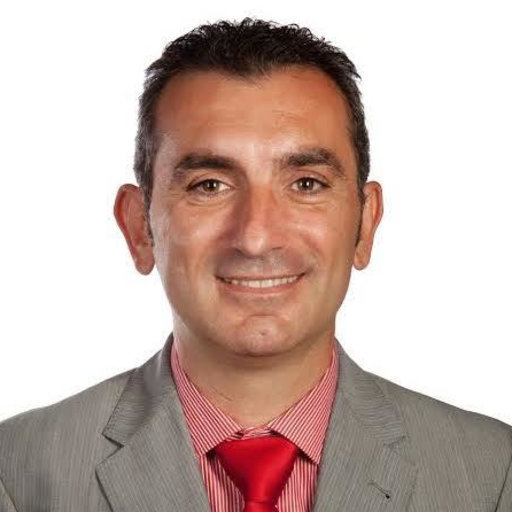Sustainability in Tourism and Hospitality
The thematic line Sustainability in Tourism and Hospitality of the TMS Algarve 2025 invites research examining innovative approaches and critical challenges in achieving sustainability within tourism and hospitality. Contributions are welcomed on sustainable development, technological innovations, and environmental, economic, and social sustainability practices. Key areas of interest include nature-based solutions, circular economy models, and green certifications. Scholars are encouraged to explore themes such as regenerative tourism, ethical dimensions, and accessibility, as well as sustainability in urban, coastal, and cruise tourism. The session also welcomes research on greenwashing, the blue economy, and the future of slow and responsible tourism. Below are some suggestions of topics. Other topics related to the thematic line are welcome.
- Sustainable Tourism Development
- Technological Innovations for Sustainability
- Economic Sustainability in Tourism and Hospitality
- Environmental Sustainability in Tourism and Hospitality
- Social Sustainability in Tourism and Hospitality
- Sustainable Urban Tourism
- Tourism and the Blue Economy
- Sustainable Coastal Tourism
- Sustainable Cruise Tourism
- Nature-Based Solutions in Tourism
- Ethical Dimensions of Tourism
- Accessibility in Tourism and Hospitality
- Greenwashing in Tourism and Hospitality
- Green Certifications in Tourism
- Circular Economy in Tourism
- Sustainability in Ecotourism
- Slow and Responsible Tourism
- Regenerative Tourism
Hospitality Management
The session Hospitality Management of the TMS Algarve 2025 invites research that delves into the strategies, innovations, and challenges shaping the hospitality industry. Contributions are welcomed on topics such as strategic management, technology and innovation, and customer experience in hospitality. Key areas of interest include sustainable practices, human resource management, and financial and revenue management. Scholars are encouraged to explore entrepreneurship, luxury hospitality, and emerging markets, as well as trends in inclusivity, accessibility, and cross-cultural management. Research addressing crisis recovery, ethical dilemmas, and hospitality analytics is particularly valued, offering insights into the future of this dynamic sector. Below are some suggestions of topics. Other topics related to the thematic line are welcome.
- Strategic Hospitality Management
- Technology and Innovation in Hospitality
- Customer Experience
- Customer Relationship Management
- Human Resource Management in Hospitality
- Sustainable Hospitality Practices
- Hospitality Finance and Revenue Management
- Food and Beverage Management
- Crisis and Risk Management and Recovery
- Innovation in Service Design
- Entrepreneurship in Hospitality
- Luxury Hospitality
- Emerging Hospitality Markets
- Hospitality Business Models
- Hospitality Analytics
- Hospitality Supply Chain Management
- Internal Marketing in Hospitality
- Multigenerational Tourism and Hospitality
- Accessibility and Inclusivity in Hospitality
- Corporate Governance in Hospitality
- Hospitality Trends
- Cross-Cultural Hospitality Management
- Ethical Dilemmas in Hospitality
Tourism Planning and Management
The Tourism Planning and Management research line explores innovative and sustainable approaches to shaping the future of tourism. This field addresses critical aspects of sustainable tourism planning, policy and governance, and regional development, ensuring responsible growth and resilience. Key areas include rural and coastal tourism planning, inclusive and community-based tourism, and urban regeneration, emphasizing strategies that balance economic benefits with social and environmental sustainability. With a focus on emerging markets, digital transformation, and tourism ethics, this research line examines the impact of blockchain, digital nomadism, and the night-time economy on tourism planning. It also considers visitor management, tourism resilience, safety, and security, especially in the face of global disruptions. Special attention is given to gender and tourism, volunteer tourism, and pro-poor tourism, promoting equitable and ethical frameworks. By integrating innovative methodologies, interdisciplinary perspectives, and cutting-edge technologies, this research line contributes to shaping evidence-based policies that enhance sustainability, inclusivity, and long-term success in tourism development worldwide. Below are some suggestions of topics. Other topics related to the thematic line are welcome.
- Sustainable Tourism Planning
- Policy and Governance in Tourism
- Rural Tourism Development
- Tourism Infrastructure Development
- Inclusive Tourism Planning
- Regional and Cross-Border Tourism Planning
- Dark Tourism Planning
- Tourism Resilience and Recovery
- Visitor Management Planning
- Tourism and Sustainable Mobility
- Coastal and Marine Tourism Planning
- Space and Future Tourism
- Blockchain and Tourism Planning
- Digital Nomad Tourism
- Tourism Safety and Security
- Gender and Tourism Planning
- Tourism for Urban Regeneration
- Emerging Markets in Tourism
- Night-Time Economy and Tourism
- Tourism Ethics and Responsible Planning
- Measuring Success in Tourism Planning
- Community-Based Tourism Planning
- Pro-Poor Tourism
- Volunteer Tourism
- Residential and Lifestyle Tourism
Chair:

Tourism Innovation and Competitiveness
The session Tourism Innovation and Competitiveness of the TMS Algarve 2025 invites research exploring how innovation drives competitiveness in the tourism industry. Contributions are welcomed on topics such as sustainable and technological innovations, tourism product development, and destination competitiveness. Key areas include data-driven decision-making, emerging technologies, and the role of collaboration and niche tourism in achieving competitive advantage. Scholars are encouraged to investigate cross-cultural and social innovation, personalisation, and innovations in extreme and pilgrimage tourism. The session also welcomes research on future trends, tourism clusters, and competitiveness strategies to navigate the rapidly evolving global tourism landscape. Below are some suggestions of topics. Other topics related to the thematic line are welcome.
- Sustainable Tourism Innovation
- Technological Innovation in Tourism
- Tourism Product Development
- Destination Competitiveness
- Crisis Management and Innovation
- Innovation in Tourism Supply Chain
- Competitiveness Through Niche Tourism
- Data-Driven Decision-Making
- Competitiveness Through Collaboration
- Emerging Technologies in Tourism
- Entrepreneurship and Tourism Innovation
- Competitiveness in Heritage and Sustainability
- Future Trends in Tourism Innovation
- Gamification and Competitive Advantage
- Tourism and Knowledge-Economy
- Tourism Innovation for Generation Z and Alpha
- Space Optimization and Tourism Innovation
- Innovations in Sustainable Competitive Strategies
- Tourism and Artificial Reality
- Competitiveness Through Tourism Clusters
- Personalisation as a Competitive Strategy
- Cross-Cultural Innovation
- Competitiveness in Extreme Tourism
- Emerging Tourism Frontiers
- Social Innovation in Tourism
- Innovation in Religious and Pilgrimage Tourism
- Tourism Competitiveness Index
Cultural Tourism
Cultural tourism stands at a crossroads, navigating the paradoxes of global connectivity and local authenticity, mass tourism and sustainability, digitalization and human experience. This conference confronts the disruptive forces reshaping its future—AI-driven hyper-personalization, climate imperatives, heritage commodification, and shifting cultural identities. Experts will critically explore the tensions between innovation and preservation, commercialization and authenticity, inclusion and exclusivity. How can co-creation transform tourists into cultural participants? Can tourism regenerate ecosystems rather than exploit them? By challenging conventional models, we aim to redefine cultural tourism’s trajectory, fostering bold, regenerative strategies that ensure economic viability while deepening cultural and social impact. Below are some suggestions of topics. Other topics related to the thematic line are welcome.
- Sustainable Cultural Tourism
- Cultural Heritage Management
- Intangible Cultural Heritage and Tourism
- Creative Tourism
- Religious Tourism
- Religious and Spiritual Cultural Tourism
- Food and Gastronomy in Tourism
- Geotourism and Cultural Heritage
- Tourism and Indigenous Cultures
- Future Trends in Cultural Tourism
- Authenticity in Cultural Tourism
- Technology and Cultural Tourism
- Virtual Cultural Tourism
- Literary and Historical Tourism
- Film-Induced Tourism
- Storytelling in Cultural Tourism
- Heritage Tourism Policy and Governance
- Economic Sustainability in Cultural Tourism
- Cultural Tourism and Identity
- Heritage Tourism and Urban Development
- Economic Dimensions of Cultural Tourism
- Educational and Experiential Cultural Tourism
- Accessibility and Inclusivity in Cultural Tourism
- Managing Cultural Tourism in Overcrowded Destinations
- Cultural Tourism and Environmental Sustainability
- Cultural Tourism and Intangible Experiences
- Regional Cultural Tourism Strategies
- Challenges of Managing Living Heritage
- Transformation of Local Cultures by Tourism
- Post-Pandemic Cultural Tourism
Active Tourism/Health and Well-being Tourism
The session Active Tourism/Health and Well-being Tourism of the TMS Algarve 2025 invites research that explores the intersections of active lifestyles, wellness, and tourism in addressing modern traveller demands. Contributions are welcomed on topics such as wellness and medical tourism, adventure and sports tourism, and mental health-focused travel experiences. Key areas of interest include sustainable and eco-wellness practices, innovations in health tourism, and catering to aging populations and families. Scholars are encouraged to advance research on trends in hiking, cycling, golf, and water-based tourism, as well as the challenges and opportunities shaping the future of health and well-being tourism in global and local contexts. Below are some suggestions of topics. Other topics related to the thematic line are welcome.
- Wellness Tourism
- Extreme and Adventure Tourism
- General Trends in Health and Well-being Tourism
- Active Tourism
- Medical Tourism
- Tourism Sports
- Mental Health and Well-being Tourism
- Sustainable and Eco-Wellness Tourism
- Health and Well-being Tourism for Aging Populations
- Innovations in Health and Well-being Tourism
- Health and Well-being Tourism for Families
- Challenges and Opportunities in Health Tourism
- Future of Health and Well-being Tourism
- Hiking Tourism
- Cycling Tourism
- Golf Tourism
- Water-Based Active Tourism
- Eco and Nature-Based Active Tourism
- Mountain and Winter Active Tourism
Climate Change and Tourism
The session Climate Change and Tourism of the TMS Algarve 2025 invites research that explores the complex interactions between climate change and tourism, focusing on both its impacts and the tourism sector’s role in addressing this global challenge. Contributions are welcomed on topics such as the effects of climate change on tourism destinations, tourist behaviour, and biodiversity, as well as mitigation and adaptation strategies for the sector. Key areas of interest include economic, social and environmental impacts, policy development, education, and technology for climate-smart tourism. Scholars are encouraged to present destination-specific case studies, innovations for climate action, and the future of tourism in a changing climate. Below are some suggestions of topics. Other topics related to the thematic line are welcome.
- Impacts of Climate Change on Tourism Destinations
- Tourism’s Contribution to Climate Change
- Climate Change and Destination Risk Assessment
- Climate Change Mitigation
- Climate Change Adaptation Strategies for Tourism
- Climate Change and Tourist Behaviour
- Economic Impacts of Climate Change on Tourism
- Climate Change and Host Community impacts
- Climate Change and Tourism Policy
- Climate Change Education and Tourism
- Technology and Climate-Smart Tourism
- Destination-Specific Case Studies
- Future of Tourism in a Changing Climate
- Innovations in Tourism for Climate Action
- Climate Change and Water Resources
- Climate Change and Ecosystem Services
- Climate Change and Biodiversity
- Climate Change and Energy
- Climate Change and Health
- Climate Change Monitoring
- Biodiversity and Natural Resource Management
Impacts of Tourism
The session Impacts of Tourism of the TMS Algarve 2025 invites research that critically examines the multifaceted impacts of tourism on environments, economies, societies, and cultures. Contributions are welcomed on topics such as environmental, economic, and social impacts, with particular attention to overtourism, housing market pressures, and community tensions. Key areas of interest include the cultural and psychological impacts of tourism, ethical concerns, and the effects of tourism on infrastructure and local development. Researchers are encouraged to explore host-tourist interactions, residents’ attitudes, and issues of authenticity, offering insights into the future impacts of tourism on destinations and their communities. Below are some suggestions of topics. Other topics related to the thematic line are welcome.
- Environmental Impacts of Tourism
- Economic Impacts of Tourism
- Social Impacts of Tourism
– Overtourism
– Impacts of tourism on local housing markets and gentrification
– Social tensions between tourists and host communities
- Cultural Impacts of Tourism
- Psychological Impacts of Tourism
- Tourism and Local Communities
- Tourism and Infrastructure Development
- Ethical Issues in Tourism
- Future Impacts of Tourism
- Residents’ Attitudes toward Tourism
- Authenticity in Tourism
- Tourism and Development
- Host-Tourist Interactions
Tourism Experiences
The session Tourism Experiences of the TMS Algarve 2025 invites research that explores the design, impact, and future trends of tourism experiences in diverse contexts. Contributions are welcomed on topics such as creating memorable, personalised, and transformative experiences, as well as the role of virtual and hybrid tourism in shaping new visitor dynamics. Key areas of interest include cultural, nature-based, culinary, and multi-sensory experiences, alongside the influence of authenticity and emotional dimensions. Researchers are encouraged to present works on experiential marketing and behavioural change in tourism. Research into measuring tourism experiences is particularly valued. Below are some suggestions of topics. Other topics related to the thematic line are welcome.
- Designing Memorable Tourism Experiences
- Virtual and Hybrid Tourism Experiences
- Cultural Tourism Experiences
- Nature-Based Tourism Experiences
- Culinary and Gastronomic Tourism Experiences
- Multi-Sensory Tourism Experiences
- Digital detox experiences
- Future Trends in Tourism Experiences
- Authenticity in Tourism Experiences
- Experiential Marketing in Tourism
- Transformative Tourism Experiences
- Emotional Dimensions of Tourism Experiences
- Adventure Tourism Experiences
- Personalized Tourism Experiences
- Family and Multi-Generational Tourism Experiences
- Dark Tourism Experiences
- Experiential Tourism and Behavioural Change
- Tourism Experiences for Special Interest Groups
- Tourism Experience Measurement
- Social Media and Tourism Experiences
Event Management
The Event Management research line explores the dynamic and rapidly transforming field of event planning, organization, and impact assessment. It covers key areas such as event design, marketing, technology integration, and innovation, with a strong emphasis on sustainability, inclusivity, and ethics. Special focus is given to cultural, corporate, and mega-events, examining their economic, environmental, and social impacts. With the rise of digitalization and emerging trends, this research line investigates future event management practices, including green initiatives, security and safety measures, and diversity in event planning. By integrating interdisciplinary perspectives, it aims to enhance the effectiveness and sustainability of events worldwide. Below are some suggestions of topics. Other topics related to the thematic line are welcome.
- Event Planning and Design
- Event Marketing and Promotion
- Technology in Event Management
- Sustainability in Event Management
- Cultural and Heritage Event Management
- Event Innovation and Trends
- Sports and Mega-Events
- Corporate Event Management
- Event Education and Training
- Event Tourism
- Economic Impacts of Events
- Environmental Impacts of Events
- Social Impacts of Events
- Event Security and Safety
- Green and Ethical Event Practices
- Event Inclusivity and Diversity
- Future Trends in Event Management
- Event Inclusivity and Diversity
- Green and Ethical Event Practices
Destination Marketing and Management
The Destination Marketing and Management track explores approaches and opportunities for marketing and managing tourism destinations in a competitive and dynamic context. This track seeks empirical and theoretical insights that enhance destination appeal, resilience, and long-term success. We encourage holistic perspectives that integrate responsible and sustainable approaches to marketing and management in destination-based contexts. Specific topics include but are not limited to:
- Destination Branding
- Sustainable Destination Marketing
- Destination Management Organizations (DMOs)
- Niche and Thematic Destination Marketing
- Measuring Success in Destination Marketing
- Collaborative Destination Marketing
- Destination Image and Reputation
- Over-Tourism Management
- Emerging Trends in Destination Marketing
- Storytelling in Destination Marketing
- Technology-Driven Destination Marketing
- Events and Destination Marketing
- Influencer Marketing
- Marketing Urban vs. Rural Destinations
- Destination Crisis Management
- Destination Management Strategies
- Destination Intelligence
Artificial Intelligence in Tourism, Hospitality and Society
Artificial Intelligence (AI) is transforming society and revolutionizing industries, profoundly impacting various sectors, including Tourism and Hospitality. This thematic line will address how AI is redefining the tourism experience, from personalized services to optimising hotel operations, as well as the integration of virtual assistants, predictive analytics for destination management, and automated customer service systems. Also, it will address advancements in machine learning and workforce dynamics and reflect on the ethical and social implications of AI adoption and the humanization of technology in an increasingly interconnected world. By examining both opportunities and challenges, it is possible to create sustainable, inclusive, and innovative AI solutions that balance technological progress with human values.
Topics of interest for submissions include, but are not limited to:
- Ethical Challenges of AI
- AI and Employment
- Technical Challenges in AI
- Legal and Regulatory Challenges
- AI in Education
- Autonomous AI Systems
- AI in Customer Experience
- AI in Revenue Management
- AI and Operations Management
- AI and Sustainability
- AI in Crisis Management
- AI in Travel Planning
- AI and Tourist Behaviour
- Robotics in Hospitality
- AI in Aviation and Transport
- AI for Accessibility and Inclusivity
- Future Trends in AI for Hospitality and Tourism
- AI in Destination Management
- AI and Personalisation
- AI in Hotel Design and Infrastructure
- AI in Tourism Forecasting
- AI in Tourism Crisis and Risk Management
- AI in Augmented Reality (AR) and Virtual Reality (VR)
- Artificial Intelligence and Machine Learning in Hospitality and Tourism
ICT and Social Media in Tourism and Hospitality
The thematic line ICT and Social Media in Tourism and Hospitality of the TMS Algarve 2025 proposes the exploration of the transformative impact of digital technologies and social platforms on the tourism and hospitality industries. Key areas of focus include ICT applications, social media marketing, traveller behaviour, and the role of user-generated content in shaping consumer trust. The session welcomes research into innovative technologies such as smart tourism ecosystems, IoT, and virtual tourism, highlighting their contributions to sustainability, cultural preservation, and smart governance. Additionally, it welcomes research on critical issues like data-driven tourism, digital ethics, and economic dimensions of smart destinations, as well as insights into future trends and challenges in fostering sustainable and inclusive tourism experiences. Below are some suggestions of topics. Other topics related to the thematic line are welcome.
- ICT Applications in Tourism and Hospitality
- Social Media Marketing in Tourism and Hospitality
- Online Reviews and User-Generated Content
- Social Media and Traveller Behaviour
- ICT and Virtual Tourism
- E-commerce and ICT in Tourism
- Social Media Analytics in Tourism
- ICT for Sustainability in Tourism
- Mobile Technology in Tourism
- Social Media and Consumer Trust
- Smart Destinations and Technology
- Smart Destinations and Sustainability
- Smart governance
- Smart Cities and Tourism
- Visitor Experiences in Smart Tourism
- Smart Tourism
- Smart Tourism and Local Communities
- Economic and Policy Dimensions of Smart Tourism
- Future Trends in Smart Tourism
- Smart Tourism Ecosystems
- Internet of Things (IoT) in Smart Tourism
- Smart Mobility and Transportation
- Data-Driven Tourism
- Digital Ethics in Smart Tourism
- Cultural Preservation in Smart Tourism
- Economic Dimensions of Smart Tourism
- Challenges in Smart Tourism
Sharing Economy and Tourism
Chairs: Miguel Ángel Solano-Sánchez and Salvador Moral-Cuadra
The thematic line Sharing Economy and Tourism of the TMS Algarve 2025 invites research exploring the transformative role of sharing economy platforms like Airbnb and Booking.com in reshaping tourism landscapes. This thematic line welcomes contributions on topics such as consumer behavior, destination management, and the economic and sustainability dimensions of sharing economy tourism. It seeks to address critical issues including legal and regulatory challenges, ethical and environmental concerns, and the impact on rural and peripheral tourism. Researchers are encouraged to explore future trends, digital nomadism, alternative accommodations, and the involvement of local stakeholders, shedding light on how the sharing economy influences employment, destination transformation, and tourism’s evolution. Below are some suggestions of topics. Other topics related to the thematic line are welcome.
- Sharing Economy in Tourism
- Impacts of Sharing Economy Platforms
- Consumer Behaviour in Sharing Economy Tourism
- Sustainability in Sharing Economy Tourism
- Legal and Regulatory Challenges
- com and Airbnb in Tourism
- Economic Dimensions of the Sharing Economy
- Sharing Economy and Destination Management
- Sharing Economy in Rural and Peripheral Tourism
- Ethical and Environmental Issues in the Sharing Economy
- Sharing Economy and Digital Nomadism
- Future Trends in Sharing Economy and Tourism
- Sharing Economy Platforms and Destination Transformation
- Sharing Economy and Alternative Accommodations
- Sharing Economy and Local Stakeholders
- Sharing Economy and Tourism Employment
- Sharing Economy and mass tourism
- Sharing Economy and gentrification
Marketing Management
The session Marketing Management of the TMS Algarve 2025 invites contributions that explore innovative strategies, challenges, and opportunities in the evolving marketing field. This thematic line welcomes research on diverse topics such as consumer behaviour, psychology, and branding, along with strategic marketing and CRM. Researchers are encouraged to present studies on contemporary issues like green and sustainable marketing, marketing ethics, and the implications of the gig economy. Contributions to emerging trends, such as behavioural marketing, content marketing, and global strategies, are particularly valued. Additionally, the thematic line seeks insights into crisis and recovery marketing, pricing strategies, and the role of marketing communication in fostering sustainable and ethical business practices. Below are some suggestions for topics. Other topics related to the thematic line are welcome.
- Advanced Analytics Tools
- Automation of Marketing Management activities
- Behavioural Marketing
- Branding and Brand Management
- Consumer Behaviour
- Consumer Psychology
- Content Marketing
- Crisis and Recovery Marketing
- Cross-Cultural and Global Marketing
- Customer Relationship Management (CRM)
- Data-driven business decisions
- Ethical Data Handling: Ethic and privacy issues with Big Data and AI use
- Experiential and Sensory Marketing
- Future Trends in Marketing Management
- Green and Sustainable Marketing
- Marketing Communication and Public Relations
- Marketing Education
- Marketing Ethics and Sustainability
- Marketing in the Gig Economy
- Optimal Experience(s)
- Personal Selling & Sales Management
- Pricing Strategies in Marketing
- Strategic Marketing
- Virtual Reality and Augmented Reality in Consumer Behavior Studies
Digital Marketing/Digital Transformation
The session Digital Marketing/Digital Transformation of the TMS Algarve 2025 invites research exploring the dynamic interplay between technology and marketing in shaping contemporary business landscapes. This thematic line welcomes contributions on digital marketing strategies, social media, Search Engine Optimization (SEO), and e-commerce, as well as the role of emerging technologies like blockchain, and gamification. Researchers are encouraged to examine digital transformation in organisations, particularly within tourism and hospitality, alongside topics such as ethics, privacy, and globalisation in digital marketing. Insights into future trends, hyper-personalisation, video marketing, and the digital customer experience are especially valued, providing a platform to explore innovative strategies and the evolving role of technology in marketing. Below are some suggestions of topics. Other topics related to the thematic line are welcome.
- Digital Marketing Strategies
- Social Media Marketing
- Search Engine Optimization (SEO)
- Digital Advertising
- Mobile Marketing
- E-Commerce and Digital Transformation
- Marketing Analytics and Data Management
- Digital Transformation in Organisations
- Digital Transformation in Tourism and Hospitality
- Digital Customer Experience
- Emerging Technologies in Digital Marketing
- Ethics and Privacy in Digital Marketing
- Globalisation and Digital Marketing
- Future Trends in Digital Marketing
- Gamification and Marketing
- AI-Driven Content Marketing
- Hyper-Personalisation in Digital Marketing
- Video Marketing Trends
- Blockchain in Digital Marketing
Human Resources Management and Organizational Behavior
The Human Resources Management and Organizational Behavior session of TMS Algarve 2025 invites researchers in this significant field of management to submit theoretical and theoretical-empirical articles dealing with issues involving people and their management within organizations, regardless of their sector or size. As such, we are interested in discussing human resource management policies and practices, aspects of human behavior in organizations, issues involving power and work relations, as well as others that are emerging in various local, national and global contexts, such as the influence of technological and digital development or the relevance of remote working. Thinking about and rethinking these issues brings up the undeniable importance of the human being in the productive scenario, their difficulties and potential, whether observed individually or collectively. We therefore focus on the following topics:
On Human Resources Management Policies and Practices:
- Recruitment, selection, socialization and retention of human talent;
- Training and development of people, multilevel learning (individual, group-collective, organizational);
- Functional assessment (performance, results and potential);
- Remuneration, benefits and rewards;
- Competencies and management of/by competencies;
- Professionalization, careers and retirement;
- Knowledge management;
- Management and managers;
- Onboarding and offboarding strategies and processes;
On Organizational Behavior:
Classic themes, such as:
- At the individual level: motivation, satisfaction, decision-making process,
- At the team/group level: leadership, communication/feedback,
- At the organizational level: culture, change;
Emerging themes, such as:
- personal/human values,
- quality of life at work,
- occupational stress,
- burnout syndrome,
- well-being and malaise at work,
- meanings of work,
- engagement at work,
- organizational bonds (commitment, entrenchment, consent),
- perceptions of justice in organizations,
- support at work (organizational, social),
- citizenship behaviors,
- counterproductive behaviors;
On Power Relations and Work:
- Workforce management;
- Conflict management processes;
- Working conditions, workers’ health and precariousness;
- Resistance, resilience and fatigue management;
- Trade unionism and collective bargaining;On emerging issues:
- Differences, diversities, intersectionalities, discrimination and violence at work, taking into account gender, skin color/race, generations, sexual orientation, aesthetic orientation, etc.;
- Digital, face-to-face, remote, hybrid and teleworking platforms and work: opportunities and impacts on workers, work and organizations;
- Working in adverse conditions and crises (political, economic, climatic, health);
- International human resource management;
- Diasporas, migrations, mobilities and their impact on workers and work;
- Artificial intelligence (AI): opportunities and impacts on workers, work and organizations;
- Foreigners, exiles and refugees in the labor market;
- People management and the Sustainable Development Goals (SDGs)
Other topics related to the thematic line are welcome.
Entrepreneurship
The session Entrepreneurship of the TMS Algarve 2025 invites research that explores the multifaceted dimensions of entrepreneurial activity and its role in driving innovation and economic development. This thematic line welcomes contributions on entrepreneurial mindsets, social entrepreneurship, and the critical role of women in entrepreneurship. Key topics include digital and green entrepreneurship, entrepreneurial financing, and leadership, alongside the impact of resilience and crisis management on entrepreneurial success. Scholars are encouraged to examine cultural and global perspectives, policy influences, and the development of entrepreneurial ecosystems. Additionally, insights into entrepreneurial education, networks, strategies, and future trends are highly valued, offering a platform to address challenges and opportunities in entrepreneurship. Below are some suggestions of topics. Other topics related to the thematic line are welcome.
- Entrepreneurial Mindset and Motivation
- Social Entrepreneurship
- Women in Entrepreneurship
- Technology and Entrepreneurship
- Sustainability and Green Entrepreneurship
- Entrepreneurship Education
- Entrepreneurial Financing
- Family Businesses and Entrepreneurship
- Cultural and Global Perspectives
- Entrepreneurial Ecosystems
- Digital Entrepreneurship
- Resilience and Crisis Management
- Entrepreneurial Leadership
- Diversity in Entrepreneurship
- Future Trends in Entrepreneurship
- Gender and Entrepreneurship
- Entrepreneurship and Policy
- Cultural Entrepreneurship
- Entrepreneurial Networks and Collaboration
- Entrepreneurial Strategies
- Entrepreneurial Failure
- Entrepreneurship and Startups
Business Ethics and Corporate Social Responsibility
The session Business Ethics and Corporate Social Responsibility of the TMS Algarve 2025 invites research that examines the intersection of ethical practices and corporate responsibility in fostering sustainable and socially impactful business operations. Contributions are welcomed on topics such as ethical decision-making, corporate social responsibility (CSR) practices, and the role of ethics in corporate governance. Key areas of interest include the relationship between CSR and sustainability, employee relations, and consumer behaviour. Scholars are encouraged to explore future trends, global challenges, and the measurement and reporting of CSR efforts, as well as the role of ethical leadership and innovation in driving meaningful change.
Below are some suggestions of topics. Other topics related to the thematic line are welcome.
- Ethical Decision-Making in Business
- Corporate Social Responsibility (CSR) Practices
- Sustainability and CSR
- Business Ethics
- Ethics and Corporate Governance
- CSR and Employee Relations
- Ethics and Corporate Accountability
- Measuring and Reporting CSR
- Ethics and Innovation
- Future Trends in CSR and Business Ethics
- Ethical Leadership
- CSR and Global Challenges
- CSR and Human Rights
- CSR and Consumer Behaviour
Chair:
Margarida de Jesús

Financial Management & Accounting
The session Financial Management & Accounting of the TMS Algarve 2025 invites research exploring innovative strategies, emerging trends, and critical challenges in financial management and accounting practices. Contributions are welcomed on diverse topics such as corporate finance, financial risk management, and the role of technology in transforming accounting and financial processes. Key areas of interest include sustainability and green finance, financial inclusion, and the ethics of finance and accounting. Researchers are encouraged to suggest presentations on advanced topics like forensic accounting, international finance, and mergers and acquisitions, as well as financial literacy and resilience during financial crises. Below are some suggestions of topics. Other topics related to the thematic line are welcome.
- Financial Management Strategies
- Corporate Finance
- Financial Technology (FinTech)
- Accounting Practices
- Financial Reporting
- Investment and Portfolio Management
- Public Finance
- Financial Risk Management
- Taxation and Compliance
- Financial Inclusion
- Ethics in Finance and Accounting
- Sustainability and Green Finance
- Financial Markets
- Financial Crisis and Resilience
- Accounting Technology
- Corporate Governance and Financial Management
- International Finance
- Auditing and Assurance
- Advanced Topics in Financial Management
- Mergers and Acquisitions (M&A)
- Financial Management in Non-Profit Organizations
- Forensic Accounting and Fraud Detection
- Accounting Standards and Regulations
- Risk Management in Finance
- Corporate Taxation and Accounting
- Technology-Driven Financial Transformation
- Financial Literacy and Education
Business Strategy and Competitiveness
The session Business Strategy and Competitiveness of the TMS Algarve 2025 invites research that delves into the strategies and factors shaping business success in competitive environments. This thematic line welcomes contributions on competitive strategies, strategic planning, and the interplay between innovation and competitiveness. Key areas of interest include global competitiveness, strategic alliances, and the role of leadership in achieving a sustainable competitive advantage. Scholars are encouraged to explore emerging trends, ethics in strategy, and innovative business models. Additionally, insights into competitive analysis, future directions, and the evolving dynamics of strategic management are highly valued.
Below are some suggestions of topics. Other topics related to the thematic line are welcome.
- Competitive Strategies
- Strategic Planning and Management
- Innovation and Competitiveness
- Global Competitiveness
- Competitive Advantage and Competitive Strategies
- Strategic Alliances and Partnerships
- Competitive Analysis
- Leadership and Strategic Competitiveness
- Business Models and Competitive Positioning
- Ethics and Strategic Competitiveness
- Emerging Trends in Competitive Strategy
- Future Directions in Business Strategy
Chair:
Business Management
The session Business Management of the TMS Algarve 2025 invites research exploring the evolving challenges, strategies, and innovations that shape business operations and leadership. Contributions are welcomed on topics such as leadership, innovation, and technology management, as well as decision-making and strategic partnerships. Key areas of interest include crisis and change management, diversity and inclusion, and the impact of remote and hybrid work on organisational dynamics. Scholars are encouraged to present works on business model innovation, knowledge management, and regional or sector-specific strategies, providing insights into future trends and the interplay of analytics and decision-making in business management. Below are some suggestions of topics. Other topics related to the thematic line are welcome.
- Leadership and Management
- Innovation Management
- Operations and Supply Chain Management
- Technology Management
- Global Business Management
- Change Management
- Crisis Management
- Digital Business Management
- Knowledge Management
- Future trends in Business Management
- Regional and Sector-Specific Management
- Decision-Making in Business
- Strategic Alliances and Partnerships
- Project and Program Management
- Business Model Innovation
- Cross-Cultural Management
- Diversity and Inclusion in Business Management
- Remote and Hybrid Work Management
- Family Business Management
- Business Analytics and Decision-Making
- Sector-Specific Business Management





























